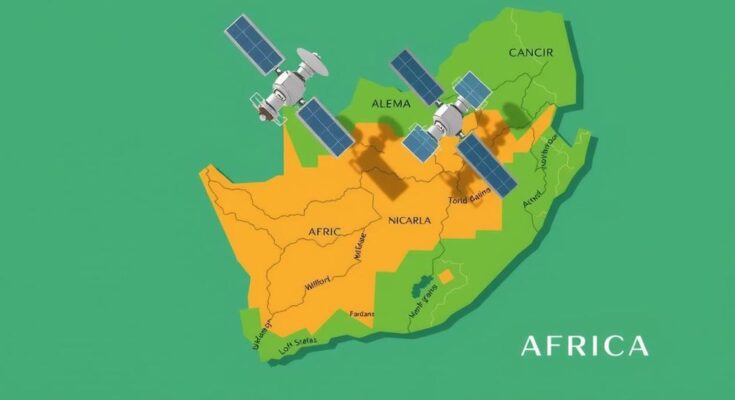Elon Musk claimed that Starlink cannot operate in South Africa because he is white. This statement has drawn criticism from South African officials who insist compliance with local laws is the primary requirement, citing the Black Economic Empowerment policy. This policy mandates foreign companies allocate a portion of ownership to historically disadvantaged groups. The tension stems from ongoing discussions about race and equity in South Africa’s post-apartheid society.
Elon Musk has claimed that his company, Starlink, is barred from operating in South Africa due to his racial background. In a recent post on social media, he stated, “Starlink is not allowed to operate in South Africa, because I’m not black,” while sharing a video featuring South African businessman Robert Hersov discussing the country’s race-based laws.
The controversy stems from South Africa’s Black Economic Empowerment policy, enacted to combat racial inequality stemming from decades of apartheid. This policy mandates that foreign telecommunications companies must sell 30 percent of equity to historically marginalized groups. Officials at the South African Department of Trade, Industry and Competition have affirmed that Starlink can operate as long as it adheres to local regulations.
Clayson Monyela, a representative from the department, responded to Musk’s assertion, emphasizing that his race does not impact Starlink’s potential operations. He stated, “Sir, that’s NOT true & you know it! … This is a global international trade & investment principle. There are over 600 USA companies investing & operating in SouthAfrica…all complying & thriving!”.
The Black Economic Empowerment policy was initiated in 2003, aiming to rectify the effects of apartheid, which ended in 1994. Starlink currently has operations in neighboring countries such as Botswana, Zimbabwe, and Mozambique, and plans to resume work in Namibia by 2025.
Musk’s remarks align with recent critical statements from former President Donald Trump regarding South Africa’s race policies. Trump has proposed that American farmers fleeing the nation for safety will receive expedited pathways to citizenship in the U.S. Trump declared that his administration would cease federal funds to South Africa, emphasizing poor treatment of farmers there.
Journalist Hopewell Chin’ono noted that Starlink’s inability to operate is due to regulatory requirements tied to the Black Economic Empowerment policy. Furthermore, internet personality Mario Nawfal criticized South Africa’s decision, suggesting it prioritizes politics over innovation and connectivity. Musk and Trump are likely to continue their critiques of the South African government’s policies moving forward.
In summary, Elon Musk’s assertion that Starlink is prohibited in South Africa due to his race is contested by South African officials, who emphasize adherence to local laws instead. The country’s Black Economic Empowerment policy is intended to rectify historical racial inequalities, a sentiment echoed by various commentators. Musk and Trump remain critical of the South African government, potentially influencing ongoing discussions about economic policies in the country.
Original Source: www.newsweek.com




